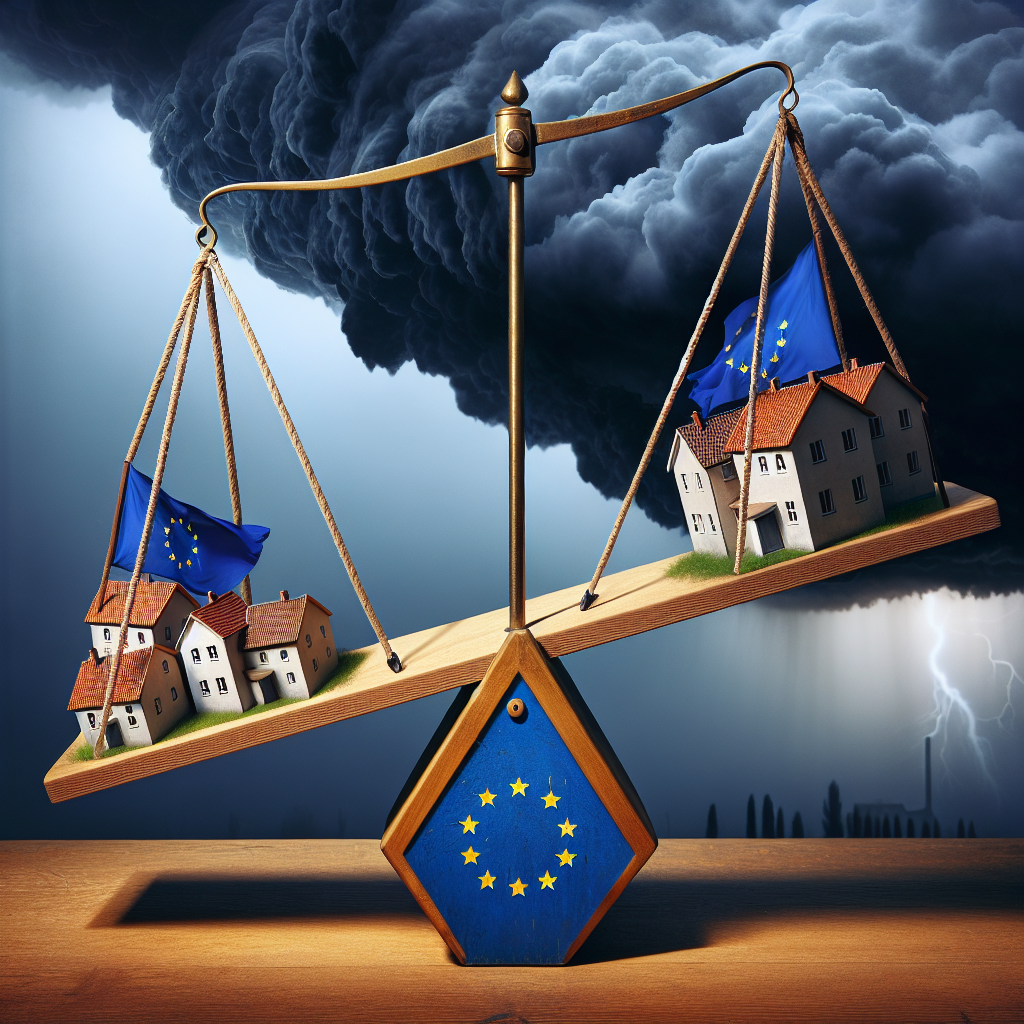
The Looming Housing Crisis - A Tipping Point for European Politics and the Far-Right?
by bernt & torsten
Mounting rental costs and sky-high property values are increasingly becoming central points of European politics, with far-right and populist parties exploiting public dissatisfaction over the growing housing crisis. Unquestionably, there is cause for concern. Far-right factions exploit the societal cracks created by inadequate government investment and flawed planning. It is not uncommon for them to blame non-nationals for these issues.
Several European Union members find themselves facing this housing conundrum. With impending parliamentary elections around the corner, the housing situation could prove as decisive as immigration in shaping the outcome. The housing crisis, traditionally targeting low-wage earners, immigrants, and single-parent families, is now affecting middle-income households, too, making it a comprehensive societal issue for the 21st century.
Housing protests are rising in cities like Lisbon and Prague, including London outside the EU. Young adults are increasingly frustrated with living costs, with nearly half their earnings dedicated to rent and mortgage rates equating to ten times an average salary. For instance, the Dutch elections saw a right-wing Freedom Party win majorly due to housing concerns. Similarly, Portugal's political party, Chega, almost tripled its votes on a comparable platform.
Far-right factions exploit the housing crisis by framing it as a battle between the haves and have-nots, capitalizing on the notion that immigrants are favoured over locals. Eurostat data reveals that housing prices across the 27 EU member states skyrocketed by 47% between 2010 and 2022, with accompanying rent increases of 18%.
Intriguingly, some academicians have found connections between escalating rents and far-right votes, irrespective of powerful anti-immigrant messaging. A specialist in EU politics found that rising rents correlate with increased support for Germany's far-right party. He contends that these patterns represent a deep-seated anxiety resulting from threats to economic and social stability.
Upon evaluating these research findings, it becomes clear that even if an individual's rent doesn't rise, the dread of a possible increase and subsequent loss of status leads to a surge in support for far-right parties. Although this party has not significantly leveraged these emotions yet, other right-wing parties prefer to attack corruption rather than address housing issues.
However, experts warn that the potential for the housing crisis to become a defining factor influencing far-right support is evident and predicted to escalate. High-ranking city officials are magnifying the need to prioritize affordable, high-quality, and sustainable housing advancements.
After recently evaluating the housing scenario in the Netherlands, the United Nations Special Rapporteur contends that affordable, adequate, and secure housing should be recognized legally. From his viewpoint, the EU's housing crisis is a consequence of modifying housing at the expense of state planning. He believes in finding a resolution for the housing crisis as necessary to cut off the fuel driving the rise of the far right.
A representative from the NGO Housing Europe suggests a resolution. She maintains that while constructing more houses is essential, what truly matters is the architecture of these homes and their financial framework. She recommends transitioning from private, profit-oriented funding to patient, public-interest financing. She emphasizes exploring different forms of ownership, such as cooperatives, and not solely relying on municipal housing.
The intensifying housing crisis is a burgeoning influence in European politics, potentially affecting future political landscapes. As more middle-class citizens feel the pinch, the situation could fan the flames of far-right parties who tactfully exploit societal grievances. Thus, adopting a more inclusive housing strategy is vital—acknowledging it as a legal entitlement and shifting towards sustainable financing methods. Perhaps we can only stem the tide of rising populist movements and maintain equilibrium in European politics.

The Billion-Kronor Man and the Thousand Workers Behind Him
An Ode to Greed, Served With Golden Cutlery
In a land not so far away,...

Why I Wrote a Novel Instead of a Manifesto About AI
I could have written an essay. A whitepaper. A TED-style...

Bring Your Own AI - The Double-Edged Sword of Modern Workplaces
In the bustling corridors of modern corporations, a silent revolution unleashes unprecedented...